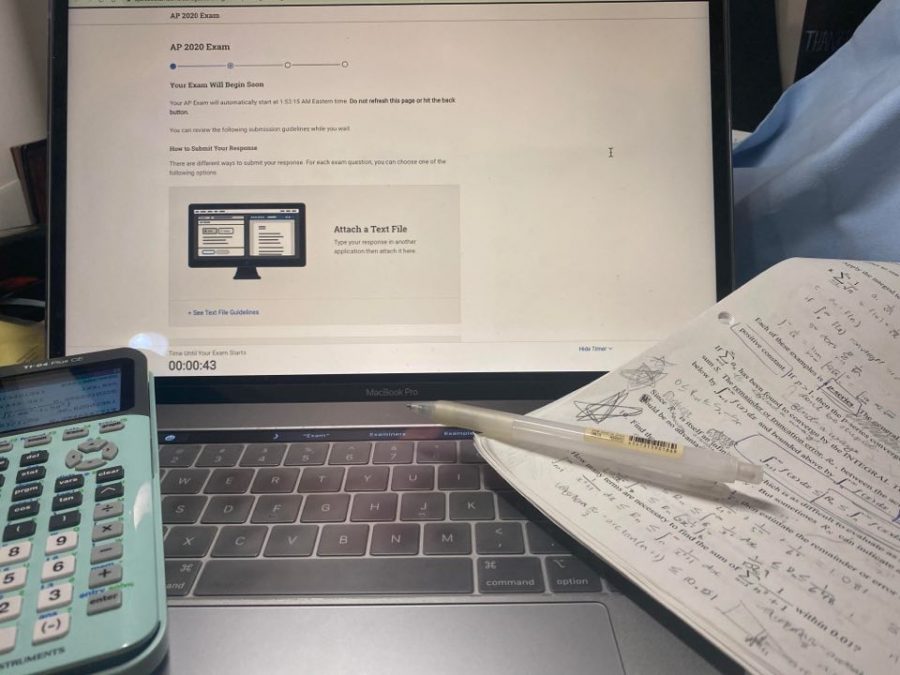Post online AP season reflections: good intent, questionable execution
This year, College Board provided an online open-note alternative to the AP Exam.
June 6, 2020
Due to the ongoing coronavirus pandemic, College Board hosted their annual AP Exams online this year from May 11, 2020 to May 22, 2020, with makeup exams being held the week of June 1, 2020. Every year, AP Exams serve as a way for students to demonstrate their mastery of a year-long course and potentially earn college credits. College Board’s decision to host exams online falls short of its intention to provide a satisfactory opportunity to all AP students due to its questionable execution and lack of foresight.
The first thing I found less than satisfactory was the lack of proper communication between College Board and students. The organization placed heavy emphasis on their use of anti-cheating software and mechanisms, but did not specify what exactly would constitute as cheating. This could have led to confusion on the well-intentioned students’ part. For instance, College Board mentioned that collaboration would be forbidden. However, because online resources were permitted, confusions arose when attempting to distinguish between resources shared with the internet and resources classified as collaboration.
Another concern was the effectiveness and representativeness of the exam itself–limiting the exam to just two questions left a lot of subject material uncovered. While I acknowledge that College Board did attempt to give questions covering themes recurring in multiple chapters, completion of just one question mainly based on one chapter should not determine overall course mastery. Correspondingly, lack of knowledge in one specific section of a course should not discredit the student of their potential knowledge in all the other sections of the course.
In addition to communication issues and content concerns, ensuring equity in testing environments and conditions was largely impractical and unfeasible. Students living in areas with less than ideal internet access or frequent noise distractions were placed at an obvious disadvantage, not to mention students without access to technological resources or incapacitated by COVID-19’s impact.
Submission guidelines were also vague, contributing to technological issues that were brought to attention when 2% of students reported submission errors. This may not seem like a lot, but since almost 5 million students took the exams this year, this number is close to 100,000 students. These students, who had completed the exam once already, were forced to retake the entire exam a month later in June, even though they were not at fault.
Because addressing these concerns is unfeasible and borderline impossible, College Board should have instead cancelled the exams and provided an alternate standard to demonstrate mastery of the course for a credit, whether it be through grades earned thus far or through a standardized project. If keeping the exams was a must, then a reliable backup for submitting responses in case of submission errors should have been provided from the onset of exam week.
Despite these concerns, College Board put forth a laudable effort considering the unprecedented stressful circumstances; the non-profit made efforts to prepare students content-wise through review videos and rapidly developed software in a limited timespan. I acknowledge that it must have been difficult to properly prepare for every possible situation. However, I believe that proper communication and more attention to glaringly large issues could have led to a more successful online AP season.






